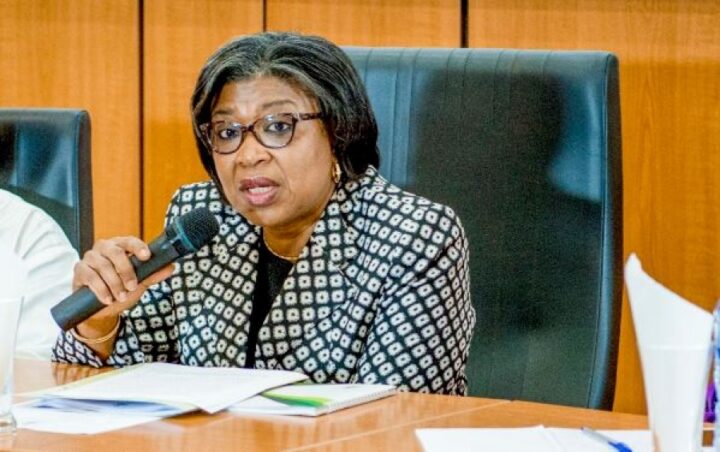Patience Oniha, director-general (DG) of Debt Management Office (DMO).
The Debt Management Office (DMO) says Nigeria is not restructuring its debt but exploring “debt liability management options”.
Debt restructuring is the process of changing the form of a company’s or country’s debt so that it can pay what it owes later, and continue to operate.
The federal government had, on Wednesday, said the it was considering debt restructuring and extending the repayment period of its credit obligations.
“Unfortunately, the cost of debt service is rising because of the rising interest rate globally, resulting in higher debt service costs. Our projection from the debt sustainability analysis is that Nigeria is able to cope with its debt service,” Zainab Ahmed, minister of finance, budget and national planning, had said.
Advertisement
“We have been engaging financial institutions to look at the opportunity to restructure our debt to further stretch the debt service period to give us more fiscal relief.”
But in a statement on Thursday, the DMO said the minister’s statement was taken out of context.
“Over the years, Nigeria’s debt management strategy has always highlighted the need to utilise appropriate debt management tools to streamline the cost and risk profile in the debt portfolio,” the statement reads.
Advertisement
“Towards implementation of these strategies, Nigeria has typically availed itself of concessional loans; the spreading out of debt maturities to avoid bunching; and, re-profiling of the debt maturities by refinancing short-term debt using long-term debt instruments.
“All of these, none of which constitute debt restructuring, are already being implemented.
“The Nigerian government is also looking forward to exploring other appropriate debt liability management options, such as bond-buy back and bond exchanges.”
DMO further assured local and international investors and creditors that Nigeria remained committed and will meet all its debt obligations.
Advertisement
FINANCE MINISTER CLARIFIES FG’S STANCE ON DEBT RESTRUCTURING
Meanwhile, speaking at the sidelines of the ongoing IMF-World Bank meetings in Washington on Thursday, the minister said the government is making efforts to extend the tenor of its current debts.
She said the government would also buy back some of its bonds to save money on debt servicing costs.
“…because inflation is going up, and it’s going to stay up for longer, our debt service obligations in foreign currency are increasing. And what we have decided to do is not to wait for it to happen,” Ahmed said.
Advertisement
“We have to start looking at how we can better manage liabilities. For example, domestic liabilities, we have been able to shift our loans from short term tenor to medium or longer term tenor.
“We have to do the same for international borrowings as well, bilateral loans and even some of the concessional loans to see if the periods could be stretched to give us more fiscal room.
Advertisement
“While we’re working to increase revenue, to improve on our revenue-to-debt service, we still need to be able to renegotiate and stretch out our repayment obligations.
“So, we are not restructuring our loans but we are looking at options of how we can stretch them out including buying back some of our bonds.”
Advertisement
Add a comment






